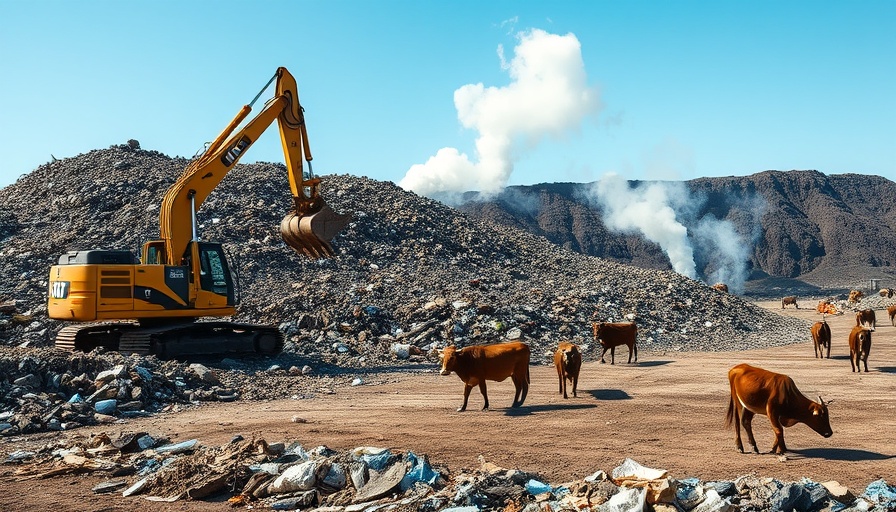
The Climate Accountability Breakdown: Who’s to Blame?
While most Americans are in tune with climate change and its dramatic effects, a recent study by researchers at Dartmouth College thrusts the question of accountability into the spotlight. Their findings reveal that 111 major corporations are collectively responsible for a staggering $28 trillion worth of climate damage. This eye-opening statistic places a significant financial burden on the very industries underpinning our economy, and particularly affects homeowners in California who are increasingly felt threatened by erratic weather patterns and natural disasters.
Trillion Dollar Implications: A Wake-Up Call for California Homeowners
The researchers linked fossil fuel emissions to damaging heatwaves, asserting that just 10 companies, including mega-players such as ExxonMobil and Saudi Aramco, accounted for over half of the total damage cost. For California residents, the implications are personal. Rising heat can affect home values, insurance premiums, and survival of local ecosystems. As homeowners navigate these changing dynamics, an understanding of the sources of climate damage opens up pathways for advocacy and legal accountability.
Understanding the Numbers: The Cost of Carbon Footprints
According to the study, each 1% increase in greenhouse gases since 1990 corresponds to around $502 billion in climate-related damage. How do these numbers translate to everyday life? Increased frequency of droughts, floods, and heatwaves not only pose immediate risks but also accumulate into rising costs for maintenance and repair. Homeowners might face dilemmas like the necessity of reshaping landscapes to withstand extreme weather. Understanding these metrics fosters informed decisions about property investment and home maintenance practices.
Actionable Insights: What You Can Do
As the effects of climate change intensify, what steps can California homeowners take to protect their investments? First and foremost, enhancing energy efficiency can be a powerful tool. Simple upgrades such as solar panels or smarter HVAC systems can not only reduce greenhouse gas emissions but can also save homeowners money in the long run. Moreover, advocating for local policies that hold corporations accountable can create a ripple effect that extends beyond individual households. Homeowners united in these efforts can influence market demands for more sustainable practices.
Ultimately, the findings of this study shine a light on who is footing the bill for climate inaction. Homeowners must not only stay informed but now play a role in moving toward more sustainable practices to safeguard their homes against the growing consequences of climate change.
 Add Row
Add Row  Add
Add 




Write A Comment